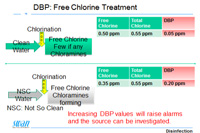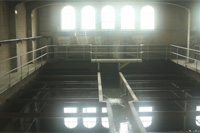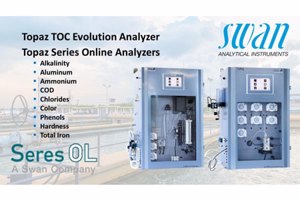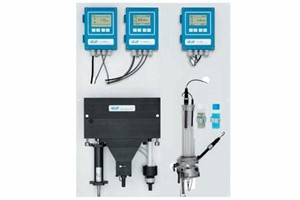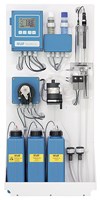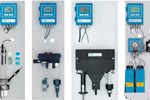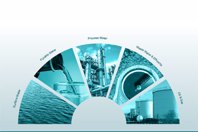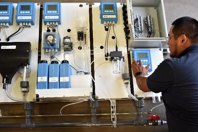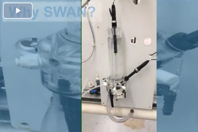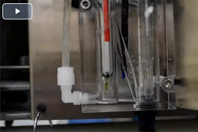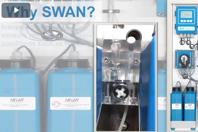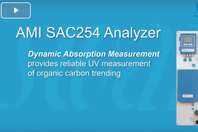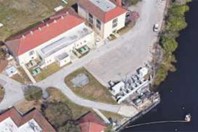ABOUT SWAN ANALYTICAL USA INC.
Swan Analytical USA Inc. is a leading manufacturer of, and field service provider for, online analytical instruments for measuring turbidity, free chlorine, total chlorine, chloramines, bromine, ozone, pH/REDOX, dissolved oxygen, phosphate, fluoride, ammonium, nitrate, and conductivity/TDS in drinking water production.
Based in Wheeling Illinois, and with field sales offices throughout the US, Swan is the US subsidiary of Swan Analytical Instruments AG in Switzerland. For more than 30 years Swan has been a technology leader in online analytical instrumentation that is not only of the highest quality, precision and reliability, but also having the lowest long term cost of ownership due to the low or no maintenance needs of the instrumentation. The Swan group of companies employ many of the world’s recognized expert chemists, engineers and technicians in the field of on-line water quality analyzers for drinking water, electrical power generation, semiconductor, pharmaceutical and food and beverage applications. As a privately held company, Swan continues to be able to take the long view when it comes to product development and support, customer relationships, and employee development.
-
Swan Guide To Chlorine And Other Disinfectants
At every stage of the drinking water treatment process, Swan offers essential instruments to measure and record key water quality parameters.
-
Instruments For Continuous Measurements In Water
SWAN Analytical USA is a leading manufacturer of high quality on-line analytical instruments for water analysis in applications such as high purity water, steam, condensate, cooling water, potable water and effluent. SWAN instruments measure a number of parameters within these applications such as turbidity, chlorine, sodium, dissolved oxygen, pH, ORP and others. Built with Swiss precision, SWAN's reliable analyzers are designed with the operator in mind.

CONTACT INFORMATION
Swan Analytical USA
225 Larkin Drive, Unit 4
Wheeling, IL 60090
UNITED STATES
FEATURED ARTICLES
-
Industrial power plants or co-generation power plants utilize steam for industrial purposes other than power production.
-
A mid-size water system in the southeast was looking to pull together multiple measurements in a single panel. After reviewing off-the-shelf solutions, they realized there was nothing that met their requirements.
-
Swan Analytical has developed a concise 36-page guide to the key measurements in cycle chemistry, providing an overview of the available technology in power cycle monitoring, along with a discussion of sampling and instrumentation.
-
Turbidity spike? Or just air bubbles? A well designed degasser can increase confidence in your Turbidity analyzer. See how SWAN addresses this common water treatment problem.
-
Why choose SWAN? Innovative designs like the rotating sensor in our AMI Trides amperometric chlorine analyzer make your life easier. Check it out to learn more.
-
Why choose SWAN? Smart design features like the clear flow cell on our AMI Sodium P analyzer let you verify flow at a glance and assure you that critical sensors have not been damaged in demanding power plant and steam cycle applications.
-
What happens when flow to your analyzer is inadequate or even stopped? Best case - questionable data. Worst case - damage to critical systems. That's why Swan analyzers feature built-in flow sensors. Watch this short video to learn more.
-
Why Swan? If you need a reliable SAC254 analyzer but are tired of the constant cleaning, take a minute to watch our video and see what makes the Swan AMI SAC254 the better choice.
-
Swan Analytical provided trusted online analyzers across a broad range of industries for key water quality parameters. Founded in Switzerland in 1991, Swan now brings Swiss quality and innovation to satisfied customers worldwide.
-
Monitoring raw water turbidity is important to inform the operator of significant changes in water quality, especially turbidity, allowing the operator to make process chemistry changes to respond to the increasing raw water turbidity. Variations in raw water present turbidity measurement challenges different from those found elsewhere in a typical treatment plant.

